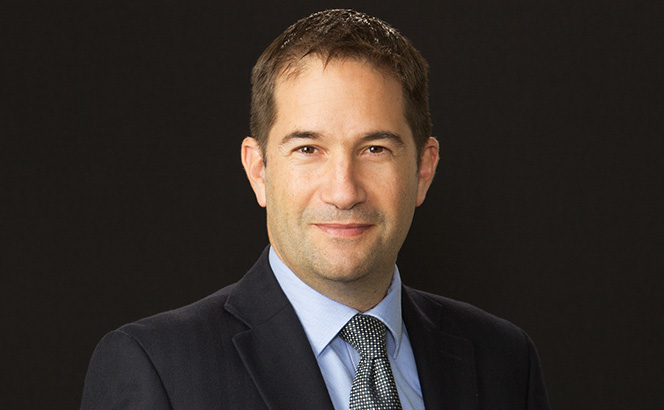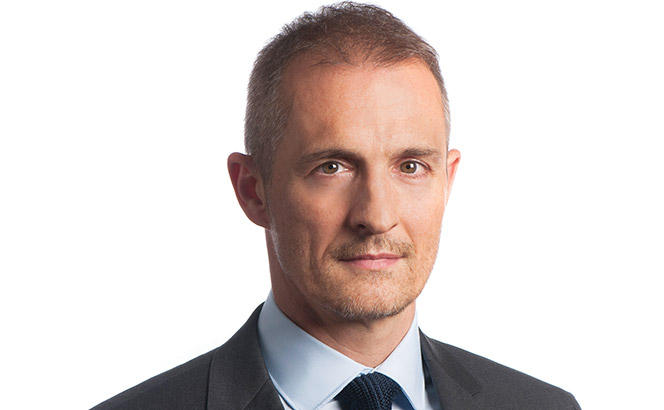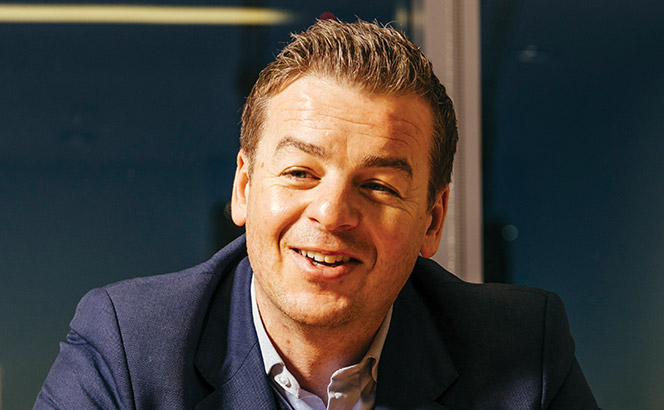With worldwide M&A activity down 17% last year, hitting a decade low, according to data from Refinitiv, 2023 was always going to be a more challenging year for US firms in London. And across the board, growth slowed as firms bucked the ‘stack ‘em high’ trend of recent years, exercising an increasingly cautious approach to investment and recruitment in the capital.
During 2023, total London lawyer headcount across the Global London group (see main table) increased by a mere 1.8%, a significant decrease from last year’s equivalent figure of 9% and far below the pre-pandemic era, which saw 15% growth at Global London firms between 2017 and 2018.
In contrast to 2022, when 72% of Global London firms increased their headcount in London, in 2023 the equivalent figure was 48%, with 10% holding headcount steady and 42% actively cutting back in the capital.
It was a similar story with partner numbers – after 70% of Global London firms increased their partner headcount in 2022, just 52% did so in 2023. Across the 50 firms, total partners rose by 2% last year, compared to 4% in 2022.
While acknowledging that 2023 was a difficult year for the industry, London management at US law firms are, in the main, pleasantly surprised that things were not worse. ‘2023 was not an easy year. The market was saturated with lawyers and work was drying up,’ says Orrick partner Mark Beeley.
‘We swung it around in the back half of the year, though, thanks to our ruthless sector focus,’ he adds. ‘Renewables really caught fire.’
‘2023 was not an easy year. The market was saturated with lawyers and work was drying up. We swung it around in the back half of the year, though, thanks to our ruthless sector focus. Renewables really caught fire.’ Mark Beeley, Orrick
Skadden London managing partner Richard Youle strikes a similar tone: ‘It turned out to be a really good year – but it was never a year where you felt real confidence in what was coming, when or how.’
This uncertainty is a recurring theme among many others in management positions. ‘It was a different year in that you saw a choppier transactional market and a more robust market in disputes and investigations. You saw increased advisory work and regulatory work for sure. Some of the restructuring work picked up significantly. So, it’s a different mix,’ says Sidley London managing partner Tom Thesing.
Sticking to their guns
Many managing partners were keen to label the quieter period as an opportunity for the sensibly minded to consolidate and maintain their positions. ‘One of the key things for any firm investing in a market is to do it in a sustainable way,’ says Stephen Kensell, London managing partner at Latham & Watkins. ‘You want to have a long-term return on investment. Once the glow of publicity dies down, how are you ensuring that all the moves you make integrate into the business, remain relevant to the client, and become embedded in your firm? These are challenges when you’re growing quickly, ensuring that what you’re doing is cohesive and isn’t a disconnected group of high-performance individuals. You want to have a team all going in the same direction,’ he adds.
In the face of a turbulent market, the best course of action may well be to buckle down and maintain a consistent client strategy. ‘We have one of the most recognised and respected corporate and private capital practices in London,’ says Mike Francies, co-managing partner of Weil’s London office. ‘A key strategic objective is to maintain that position.’
Fried Frank London managing partner Ashar Qureshi makes a similar point: ‘We expect to continue to grow in London. But are we ever going to be comparable in size to the Magic Circle or to some of the bigger US firms in London? I would doubt that.’
A more flexible focus may offer short-term wins, but it is unlikely to result in long-term dividends, argues Mayer Brown London managing partner Dominic Griffiths: ‘Certain markets were down, but it’s a matter of sticking in those markets and staying close to the clients for when the market comes back– it is cyclical. We are well hedged at Mayer Brown.
‘There were more deals in the midmarket and that is what we also focus on. If you just go trophy hunting for the big deals, you can do one or two, but it’s hard to get consistent work unless you are predominantly a big-ticket New York based firm focused solely on private equity. We have a growing PE practice but are also dedicated to continuing to serve a broader client base including increased volumes of work from private credit and high margin bank work.’
Power plays
Paul Weiss’s onslaught on the London market has of course been one of the biggest stories of the year (for more, see our Paul Weiss and Kirkland feature ‘Market forces – Paul Weiss, Kirkland and the war for London talent’). Following Cravath’s English law launch in February 2023, Paul Weiss was left as the only elite US firm in London without such capabilities, but the months since the seismic hires of debt finance rainmaker Neel Sachdev and M&A heavyweight Roger Johnson from Kirkland & Ellis have proved transformational for the London office.
‘Certain markets were down last year, but it’s a matter of sticking in those markets and staying close to the clients for when the market comes back.’ Dominic Griffiths, Mayer Brown
With 19 partner hires under its belt, the firm has rarely been out of the headlines of late, with Sachdev and Johnson leading the charge to build up a considerable English law practice in double-quick time, recruiting a series of partners from other top-of-the-market firms.
This strategic power play only serves to underline that despite the slowdown in growth, the London legal market retains its significance for US headquartered firms.
Once the good times return, market commentators are confident of bounceback in investment.
‘US firms in London used to be happy to let the London office be,’ says Beeley. ‘They now want the London office to look like the New York office. And they’re unlocking the global war chest to make that happen. For us, it’s all about global alignment.’
Highest climbers
Based on lawyer headcount alone, the fastest growing Global London firm year-on-year is Vinson & Elkins, where London headcount increased by a pacy 41% from 46 last year to 65. Notable lateral hires in 2023 included two partners from Milbank: energy transactions and projects partner Kilian de Cintré and energy and infrastructure finance partner Chris Taufatofua.
Despite those moves, Milbank saw London partner headcount increase by 9% on the back of the March 2023 acquisition of Dickson Minto’s London private equity team, comprising six partners, one special counsel and 14 associates.
‘We’re really pleased with the way last year went. It’s been a big year for the firm and the London office in particular,’ says London co-managing partner Andrej Wolf. ‘We welcomed the Dickson Minto team who are now fully integrated, so much so that it feels like they have always been an integral part of the London office.’
Fellow London co-managing partner Tom Canning is equally enthusiastic about the office’s growth, particularly regarding how it is enabling them to work on cross-practice matters. ‘We’re the perfect size to do that – big, but not too big. So, we’re able to effectively go where the work is. If there’s a significant restructuring, which we need corporate lawyers on, we need finance lawyers on, then we’re very well equipped to do that,’ he says.

‘The US and UK elections may cause some disruption to deal making as markets await the outcomes.’
Justin Stock, Cooley
At Cleary, which saw 12% headcount growth, corporate partner Tihir Sarkar described 2023 as ‘a very big year’.
‘We’re expanding – there’s been a lot of growth,’ he says. ‘There’s a lot of faith backed with investment to facilitate that growth in London from the firm, and that momentum continues. Then on the back of that, we’ve also been building up our associate base across the office practices, particularly in private equity and related finance. It’s a very significant moment in the history of our London office which was established way back in 1971.’
Despite being one of the most conservative firms among the Global London cohort, with just 2% headcount growth over five years, London partner count grew by a notable 25% during 2023, with the London office welcoming high-profile partner hires including Travers Smith private equity head Ian Shawyer and Edward Aldred, the former co-head of Linklaters’ financial sponsors leverage finance practice.
Sarkar’s corporate colleague Nallini Puri adds: ‘It’s not a secret that historically we’ve been very slow when it comes to lateral hiring. In fact, historically we’ve very rarely hired laterally. But there’s been a real change in sentiment in the past few years and last year was a turning point for London. We’ve got a very strong practice, but we weren’t where we wanted to be in some areas and our lateral hires helped fill those gaps.’
A period of uncertainty
The macro-economic threats which plagued 2023 largely look set to continue into 2024, with managing partners expressing caution about how this will play out for the legal industry.
The geopolitical situation remains tense with the continuation of the Ukraine conflict, the outbreak of war in Gaza, and an increasingly unstable relationship between the US and China, as trade wars pick up pace.
Meanwhile, upcoming elections across the globe are raising the prospect of yet more uncertainty and change. Cooley London managing partner Justin Stock says: ‘The US and UK elections may cause some disruption to deal making as markets await the outcomes.’
Thesing takes a similar view: ‘There are a number of upcoming elections that can sometimes be a bit of a distraction as you wait to see what their outcome is and whether policy changes are going to affect any parts of the market.’
Inflationary pressures are beginning to come under control, but a reversal is not off the table, creating more questions for businesses. Likewise, interest rates currently appear more settled, but they are still higher than at any time in recent memory, with market confidence taking some time to recover. ‘Interest rates continue to act as a break on deal flow activity, particularly in private equity, but when rates do turn, we expect a significant upswing in transactions,’ Stock adds. ‘The capital markets in the UK and Europe look like they may take a bit longer to recover than the market had originally hoped.’
A possible reprieve on this front does little to abate the reality that law firms are now operating in an increasingly challenging environment. ‘There are some better fundamentals, but it is an unstable and changing world,’ Youle says. ‘What we have to do is believe in our clients, believe in our people and the businesses that we’re in, and position our firm to differentiate ourselves in a hugely competitive marketplace. All those pressures and threats exist for everybody.’
The bigger picture
When looking at headcount growth over a five-year period, the fastest-growing firms include Simpson Thacher (133%), Goodwin (131%), Willkie Farr & Gallagher (125%) and Quinn Emanuel Urquhart & Sullivan (69%).
Commenting on his firm’s growth, Goodwin London co-chair Ajay Pathak says: ‘We’ve made some investments in strategic areas that complement our existing practices, so we have expanded our capabilities in the secondaries and credit funds area, but also building on the success that we’ve had in developing our disputes practice by bringing in [former Cadwalader partner] Mark Beardsworth to head up our investigations and enforcement practice, as well as continuing to develop around our core competencies. This focus has meant that in a challenging transactional environment, our business remains quite resilient.’
‘In London, we focus on four principal areas, namely private equity, real estate, technology and life sciences. The area we’ve developed more recently is on the contentious side because we didn’t have that capability in the UK a few years ago, and we’ve seen significant growth both in that and on the antitrust side. Similarly, on the transactional side, we continue to be very active across our core industry areas, as our focus on going deep in those industries has served us well,’ he adds.

‘We have always pursued a measured, “quality over quantity” approach to lateral recruitment. If it takes us considerable time to find the right fit in a particular area, then so be it.’
Tom Sprange KC, King & Spalding
Goodwin’s impressive growth is acknowledged by peers in the market, with one managing partner at another Global London firm saying: ‘Goodwin has always caught my eye – over the past decade they’ve grown to over 200 lawyers in London, and have done so while maintaining, outwardly at least, a culture that people are attracted to.’
Other strong performers on a five-year metric are Kirkland & Ellis, with a 65% headcount increase, Paul Hastings (62%), Skadden (62%), Gibson Dunn (60%), Proskauer (55%) and King & Spalding (50%).
In this bracket, managing partners placed an emphasis on conscientious, steady recruitment. King & Spalding managing partner Tom Sprange KC says: ‘We have always pursued a measured, “quality over quantity” approach to lateral recruitment.
If it takes us considerable time to find the right fit in a particular area, then so be it,’ he says. ‘Since the start of 2023 we have added four senior hires – restructuring partner Patrick Schumann, employment partner Tessa Cranfield, high yield partner Peter Schwartz and former DPP, Sir Max Hill KC. In that time, we’ve also made up five London lawyers.’
Proskauer London co-head Steven Davis tells a similar story. ‘We’re conservative whilst opportunistic. If we have this conversation again in two years’ time you will likely see steady growth over that period. We have momentum and we are going to maintain that.’
Crystal ball gazing
Despite concerns over myriad headwinds facing law firms, managing partners remain resolute on the importance of their London platforms. ‘It’s the hub of our international practice and a strategic pillar for the firm globally,’ says Akin London head Sebastian Rice. ‘Every firm has a different strategy when it comes to Europe; some have a presence in many regions. We’ve taken the approach that the focus of our talent is on London, and we work with great independent firms across Europe.’
White & Case London executive partner Inigo Esteve tells a similar story: ‘If you look at our revenue for the last five years, London has increased by nearly 32%. That’s an accurate reflection of the importance of the office in terms of how it contributes to the firm as a whole.’
For Qureshi, London is a market that is: ‘extremely global – it’s unique in that way, a true cross-border market, a destination’.

‘London is arguably the second biggest legal market in the world, so it will probably always have a bigger headcount than our other European offices.’
Richard Youle, Skadden
Youle adds: ‘London is arguably the second biggest legal market in the world, so it will probably always have a bigger headcount than our other European offices. We’re well positioned in the market, and we’re looking to grow our London office and get deeper into certain practice areas. We see it as an amazing platform for investment.’
And so while investment for many Global London firms may be temporarily on pause, London will unquestionably remain a core strategic focus – with 2023 likely to be a blip rather than a blemish. LB
Legal Business would like to thank Mayer Brown for its sponsorship of the Global London report.












